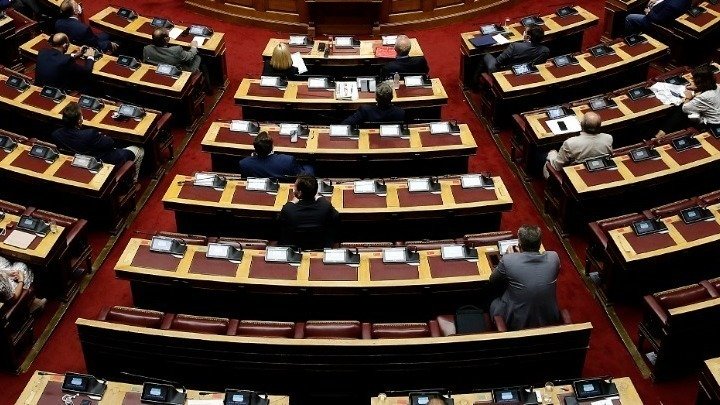Greece Adopts Controversial Household Legislation on Joint Custody of Youngsters
Greece is now giving joint custody of children to divorced parents. Photo credit: AMNA
Greece passed a controversial family law on Thursday granting divorced parents joint custody of children despite opposition from several human rights groups and opposition parties.
The law was elected by the ruling New Democracy Party in the plenary session of Parliament, while all the other parties rejected it either by voting or by being eliminated during a roll-call vote for two articles.

The two controversial articles – about joint and equal custody and the time it takes for the child to communicate with the parent who does not live with them – were only approved by votes from the New Democracy. Two MPs of the party, who had raised concrete objections early on and called for improvements, voted against.
MEPs’ concerns about Articles 7 and 13 included that the child’s interests were not being taken into account, that an equal sharing of custody between parents did not recognize the parent taking on the burden of bringing up the children, and that custody of one Special family courts should be awarded.
Family law “endangers women and children”
The new family law has been heavily criticized by legal organizations that claim it endangers women and children.
The proposed changes would allow courts to restrict parental communication with a child if that right is “poorly or abusively” exercised, or to revoke custody if a parent fails to perform their duties or is abusively exercising that function.
However, as Human Rights Watch (HRW) says, such decisions must be final or made by the Supreme Court. This can take years during which an alleged abusive parent can maintain custody and communication with the child and the relative parent.
In cases of “imminent threat” to the mental and physical health of a child, a prosecutor can take immediate protective measures and then have 90 days to bring the case to court. The bill does not explicitly mention abuse of one parent by another, or measures to protect victims of abuse of intimate partners in joint custody cases.
Such omissions in the law could force women and their children into constant contact with abusers and create opportunities for further harm.
Family law “violates international law”
In a statement, the organization alleged that the amendments to the new family law violated international law that custody decisions must be based on an assessment of the best interests of the individual child and not adequately protect victims of domestic abuse and their children, Human Rights Watch said.
“Equal co-parenting is a laudable goal, but a blanket guess of 50-50 custody ignores the dangerous reality for victims of domestic abuse – mostly women – and their children,” said Hillary Margolis, senior womens rights researcher at Human Rights Watch.
“The Greek Parliament should prioritize the safety of children and victims of abuse and oppose these alarming changes.”
Expert organizations in Greece criticized the basic assumption of the law of equating the best interests of the child in general with the equal participation of parents in the upbringing of the child rather than taking decisions on a case-by-case basis.
Groups included the Greek Society of Child and Adolescent Psychiatry, the Family Rights Society, the Greek National Human Rights Commission, the Legal Committee on Legal Custody Issues, the Equal Opportunities Organization Diotima, and Refugee Support Aegean.


Comments are closed.